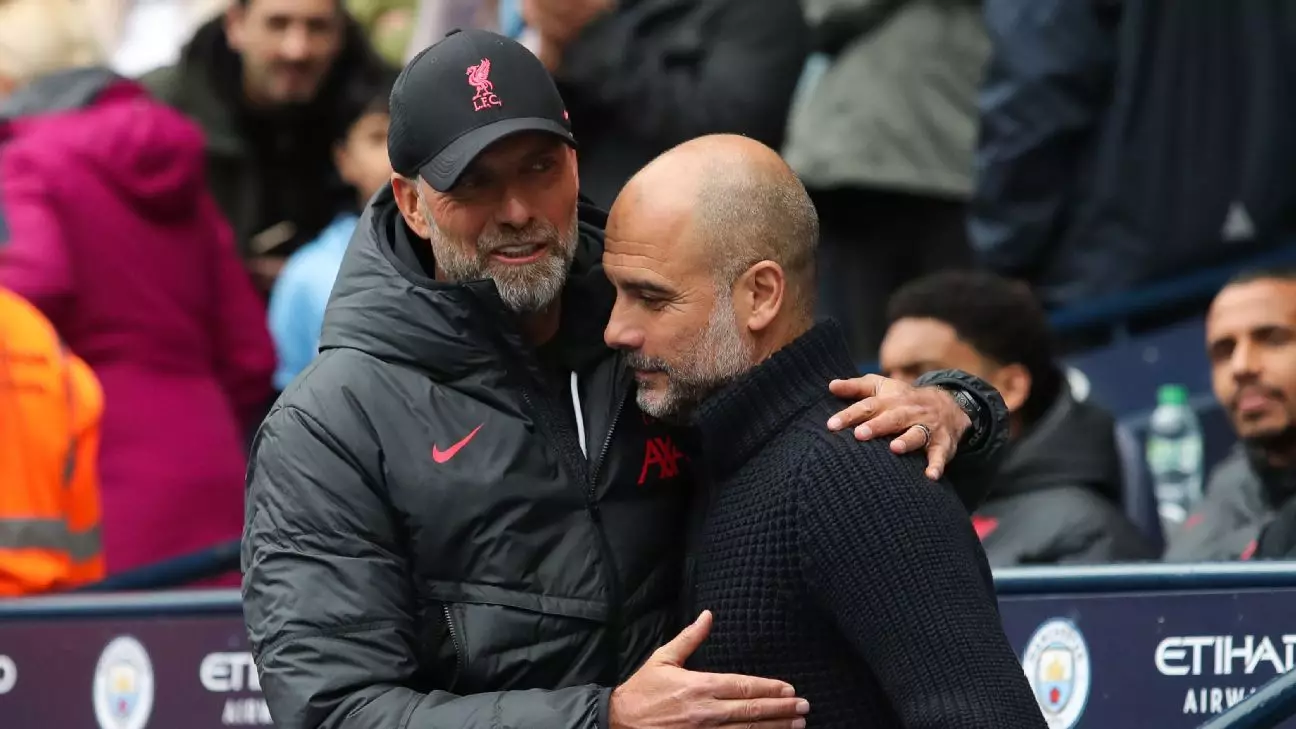Jürgen Klopp, the former manager of Liverpool FC, recently made waves with his comments regarding Manchester City and the ongoing investigation into their alleged financial misconduct. The Premier League’s referral of City to an independent commission over 115 breaches of financial regulations, dating back to 2009, has thrown a spotlight on the significant impact of financial propriety within football. Klopp’s hypothetical celebration on the island of Mallorca should Manchester City lose their titles draws attention not only to the tension between rival clubs but also to the broader implications of financial integrity in the sport.
Klopp’s Liverpool finished as runners-up to City in both the 2018-19 and 2021-22 seasons, leading to a lingering frustration among Liverpool supporters and players alike. His remarks highlight a peculiar intersection of joy and schadenfreude in the realm of competitive sports, where the missteps of one team can serve as vindication for others. The enthusiasm for throwing a party if City were stripped of their honors offers a glimpse into the intense rivalry that characterizes Premier League football.
The Seriousness of Financial Regulations
The allegations against Manchester City carry significant weight and have sparked discussions regarding the governance of football clubs. As the landscape of professional sports continuously evolves, adhering to financial regulations is paramount. The outcomes of these investigations can have lasting repercussions—not just for City, but also for other clubs that navigate the murky waters of financial sustainability. Klopp’s comments serve as a reminder that beyond the thrill of the game, economic factors play a crucial role in determining success on the pitch.
It’s essential to acknowledge that the footballing landscape has become increasingly commercialized, with many clubs grappling with the need to balance success with financial viability. The scrutiny over Manchester City’s financial practices emphasizes the need for accountability in a sport that has often been marred by excessive spending and lack of transparency. Klopp’s remarks on the situation reflect a larger conversation about corporate ethics and the integrity of sporting competitions.
As Klopp embarks on a new chapter with Red Bull as head of global soccer, he expresses a bittersweet sentiment about his past with Liverpool. The enigmatic German manager has been pivotal in transforming Liverpool into a formidable contender in both domestic and European competitions. He has also expressed a mix of anxiety and hope regarding the futures of key players, including Trent Alexander-Arnold, Mohamed Salah, and Virgil van Dijk. With their contracts up at the end of the season, Klopp’s musings reveal his affection for these athletes and the uncertainty that looms over the club’s roster.
Notably, Klopp humorously distanced himself from the pressure of answering contract-related questions during his new tenure. While his tenure at Liverpool was marked by cohesive teamwork, a shared vision for success, and unity, he now faces the reality that strategic decisions about player retention lie in the hands of others. His hope for Salah, whom he regards as Liverpool’s greatest modern striker, underscores the emotional connection that both players and managers develop over time.
In another pivotal moment during the press conference, Klopp vented his frustrations about the FIFA Club World Cup and its implications for player welfare. His critique speaks volumes about the congested schedules that demand player commitment throughout the summer months, leaving little room for recovery. This aspect of modern football stresses the urgency for clubs and governing bodies to reconsider their operational strategies. Klopp’s stance emphasizes the necessity for reform in international scheduling, advocating for a reduction in the number of games to preserve the health and longevity of players.
As fan sentiments continue to evolve, Klopp’s analyses not only provide insight into the inner workings of football but also reflect broader issues regarding the treatment of players, the integrity of competitions, and the sustainability of club finances. As the season unfolds, Klopp’s reflections on his past with Liverpool and his critiques of the current football climate underscore the complexities that define contemporary football. These narratives elicit an urgency to address the challenges besieging the sport, ensuring that both players and teams can pursue excellence without sacrificing their integrity or well-being.
